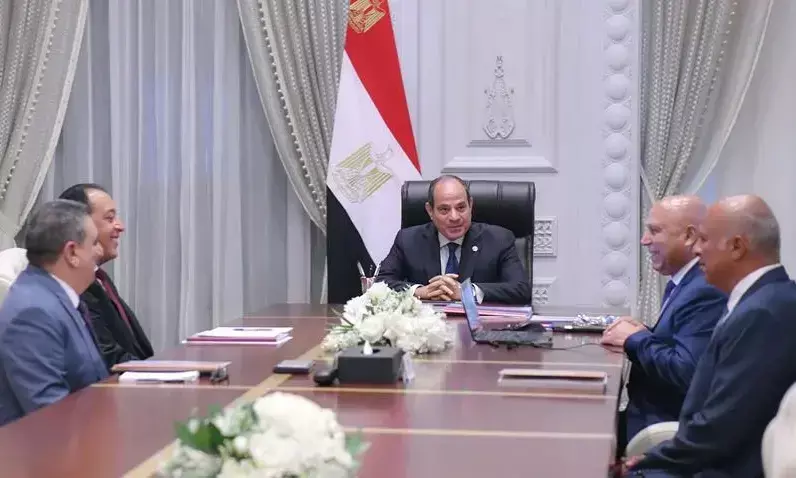President El-Sisi pushes timely delivery of Egypt’s transport projects
The Egyptian President urged the timely completion of infrastructure projects and called for faster development of corridors to strengthen the country’s logistics role.

The Egyptian President Abdel Fattah El-Sisi held a meeting on Sunday, 27 July 2025, to review the latest developments in national transport, logistics and industrial projects. The review included updates on ongoing work led by the Ministry of Transport and Industry, with a focus on infrastructure aimed at improving trade connectivity and economic development.
The meeting was attended by Prime Minister Dr. Mostafa Madbouly, Deputy Prime Minister and Minister of Transport and Industry Lieutenant General Kamel El-Wazir, and Presidential Advisor for Financial Affairs Lieutenant General Ahmed El-Shazly.
According to a statement by Presidential Spokesman Ambassador Mohamed El-Shenawy, the president was briefed on railway projects currently under development in the Sinai Peninsula. These include the Al-Arish–Taba railway line and the near completion of the Bir El-Abd–Al-Arish line. Officials said both projects are intended to support broader development efforts in the Sinai region and form part of a proposed logistical corridor linking the Red Sea to the Mediterranean Sea.
The meeting also covered seaport development, with updates on the implementation status of several facilities. These include Ras Sedr Port, Gargoub Port, Abu Qir Port, the Grand Port of Alexandria, the new El-Max Port, and continued upgrades at Sokhna Port. In addition, progress was reported on the establishment of Taba Seaport and ongoing development at Damietta Port. These ports are part of Egypt’s national logistics strategy aimed at improving maritime infrastructure and increasing port capacity.
Progress on Egypt’s high-speed electric train project and the construction of Cairo’s fourth metro line was also discussed. Both are considered central to improving urban mobility and intercity transport infrastructure.
The meeting further addressed efforts to expand industrial zones in Upper Egypt. Updates were shared on projects in Wadi Al-Saririya and Al-Motahhara in Minya Governorate, as well as northern Fayoum in Fayoum Governorate. These zones are designed to support local manufacturing, particularly in sectors such as textiles and ready-made garments, and are expected to generate employment in labor-intensive industries.
President El-Sisi stressed the importance of completing all infrastructure projects within their designated timelines. He also directed continued coordination to accelerate the development of integrated logistical corridors that link production zones with ports, road networks, and railway systems. According to the official statement, these corridors are expected to contribute to Egypt’s goal of becoming a regional logistics hub by enhancing trade facilitation and supply chain efficiency.
The projects under review are part of Egypt’s broader development agenda focused on modernising transport infrastructure, supporting industrial growth, and improving regional and international trade connectivity.


